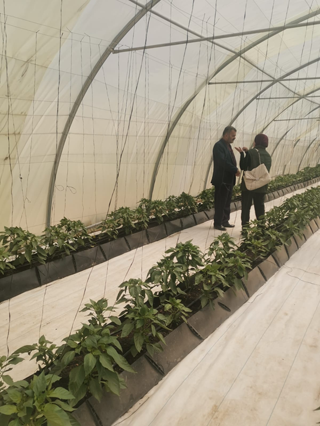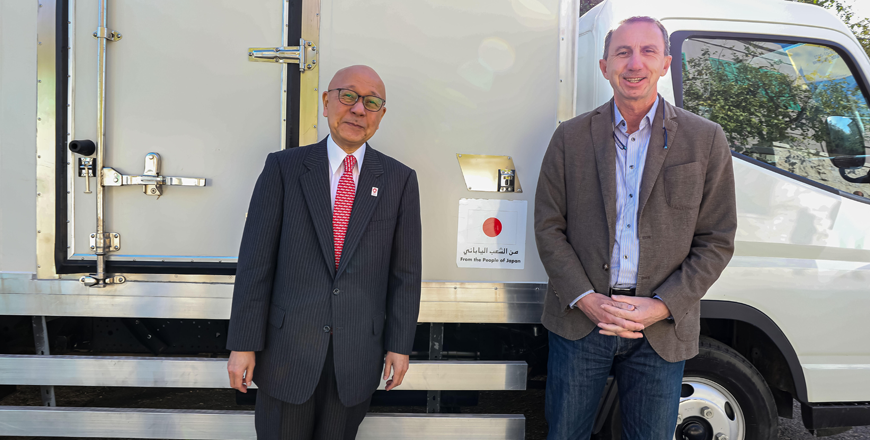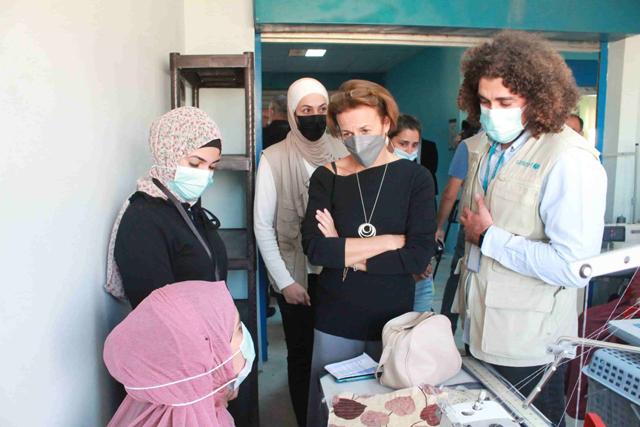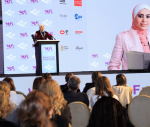You are here
UNICEF, DAA bring economic empowerment opportunities to vulnerable youth in Jordan through hydroponic farming
By JT - May 09,2023 - Last updated at May 09,2023

UNICEF and Dar Abu Abdallah have partnered on a sustainable hydroponic project in Jordan to deliver training and income-generating opportunities to vulnerable young people, aged 18 to 24 years (Photo courtesy of UNICEF)
AMMAN — UNICEF and Dar Abu Abdallah (DAA) have partnered on a sustainable hydroponic project in Jordan to deliver training and income-generating opportunities to vulnerable young people, aged 18 to 24 years.
Under this project, which covers 11 locations across Jordan, the “Bab Amman” hydroponic farm in Jerash was officially opened on Monday. This project aims to empower youth with the skills they need to carry out demand-driven farming using modern, environmentally friendly techniques that increases productivity and conserves water, according to a UNICEF statement.
“Young women and men living in rural areas of Jordan are eager to improve their skills and livelihoods, and be leaders of green and sustainable growth,” said Philippe Duamelle, UNICEF Representative to Jordan.
“UNICEF is keen, with the Jordanian authorities and our partner DAA, to offer such opportunities to young people in Jordan,” Duamelle added.
Samer Balkar, Director General of Dar Abu Abdullah said: “We are immensely grateful to UNICEF for their support and strategic partnership with Dar Abu Abdullah. Today marks a milestone as we are opening our fourth hydroponic farm, ‘ADDAR Farm - Bab Amman,’ which will not only provide young people with the means to generate a stable source of income, but also contribute to the sustainable development of our community.”
“This transformative project, was made possible by the unwavering dedication of UNICEF and our local partners, which is considered a significant step towards improving the livelihoods of vulnerable youth in Jordan. By equipping them with the necessary skills and resources, we are empowering these young, fostering a brighter future for all,” Balkar added.
Through partnerships with local municipalities and universities, who provide the land and other essential services for each farm, and support to gain access to private sector markets, the initial investment is designed to lead to self-sufficient businesses within one year.
The project also contributes to stimulating local economic development in rural areas, building stronger local supply chains and improving food security, the statement said.
All young people in the programme receive life skills training — from critical thinking to financial literacy — technical training combining both theoretical and practical knowledge on hydroponics and on-the-job training in greenhouses.
The cooperative model promotes co-ownership and co-management of the youth in the business, with earnings both shared among individuals and reinvested, read the statement.
The hydroponic farm project is part of UNICEF’s Learning to Earning programme — supporting vulnerable adolescents and youth to access meaningful employment and income through training and entrepreneurship support that reflects the needs of the labour market. It is supported by the Government of Canada, the Kingdom of the Netherlands through the PROSPECTS partnership, and the United States Government.
Related Articles
AMMAN — The Japanese embassy on Sunday handed over refrigerated trucks to the Dar Abu Abdullah Association for Philanthropy and Development
AMMAN — UNICEF and Dar Abu Abdullah (DAA) on Monday launched the Women’s Capacity Building and Productive Centre in Mafraq, as part of their
AMMAN — The Embassy of Ireland and Dar Abu Abdullah (DAA) recently signed an agreement to provide retail and industrial training for 25 Jord


















